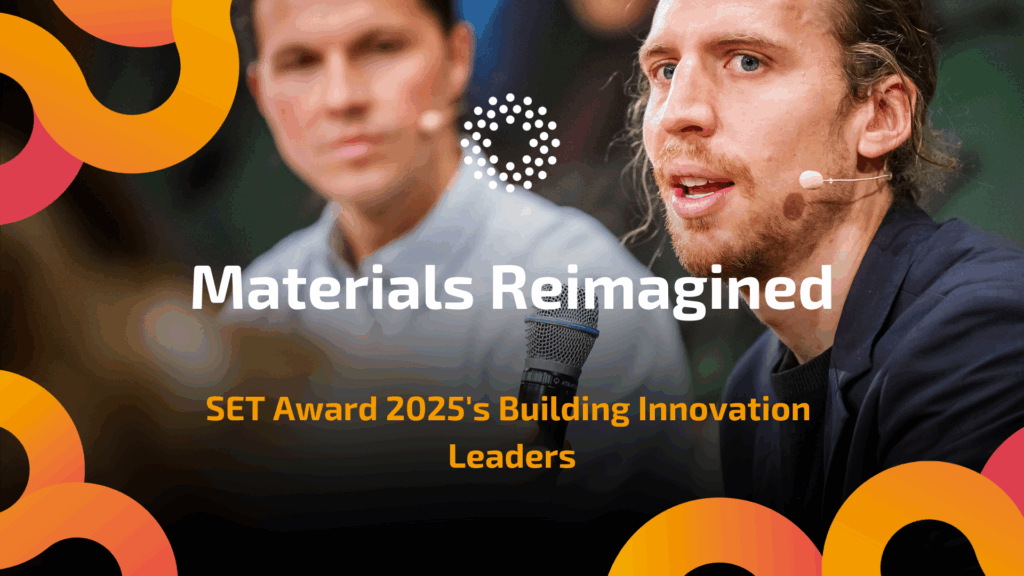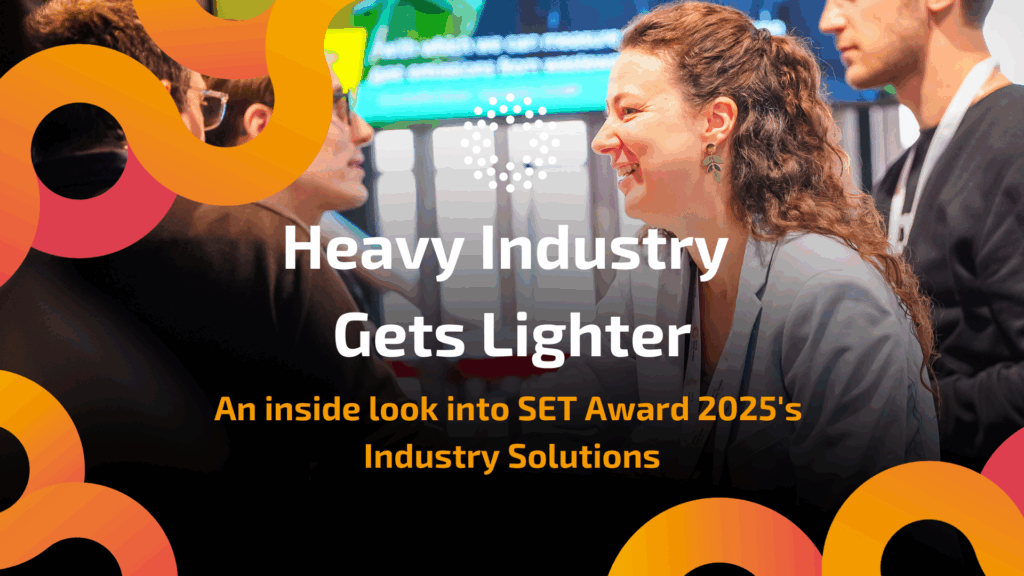The Buildings & Construction category is full of new ideas that are making our built environment greener and smarter. This group makes up about 15% of the SET100 startups and is growing quickly, with expected revenue growth of 4.6× in two years.
According to Net Zero Insights, these startups have raised over $57.5M across 77 deals involving 108 investors. The largest single investment round was $12M, showing that investors have a lot of confidence in the top companies. Recent figures show a big increase, with $17.7 million invested in the last year. Deal sizes have shot up a lot, with the average going from $2.13M to $4.43M in the last year.
Why the excitement, then? Buildings use a lot of energy and emit a lot of CO2, so there’s a big demand for solutions that improve energy efficiency, reduce construction waste, and lower the carbon footprint of real estate. Startups in this space are rising to the challenge with AI-driven building management systems, digital twin technologies for planning, sustainable construction materials, and new methods for retrofitting old buildings. The plan is simple: we want to use less energy, cut down on the carbon that’s produced, and eventually create buildings that have net-zero or even negative carbon emissions.
In this post, we’ll meet the standout innovators in Buildings & Construction from SET Award 2025. The winner of this category, Concular, is changing the game when it comes to reusing building materials on a large scale. The finalists – Pionierkraft GmbH and Urbio SA – are tackling two different projects: one is about making it easy for apartment buildings to share solar energy, and the other is about automating the design of clean energy systems for buildings and cities. We’ll also be chatting with some of the other start-ups out there shaking up construction and building operations with digital tools and clever solutions.
Winner: Concular – Making Circular Construction a Reality
Concular has earned the top spot by fundamentally rethinking how we construct and deconstruct buildings through circular economy principles. Their platform revolutionizes the reuse and recycling of construction materials, ensuring components get a second life instead of heading to landfill. Through their software, Concular conducts pre-demolition audits, creates digital material passports, and manages redistribution of everything from steel beams to facade panels into new construction projects. They even establish Urban Mining Hubs in cities where reclaimed materials are processed and stored.
The impact is substantial: Concular has digitally assessed over 450 buildings slated for demolition, played a key role in developing DIN SPEC 91484 (now required for all public demolition projects in Germany), and demonstrated up to 30% savings in deconstruction costs and 20% savings in new material costs on projects using their system. Their innovative Reclaimed Construction Material Insurance removes a key barrier to material reuse by covering any issues with salvaged components. By addressing risk, logistics, and digital integration, Concular provides an end-to-end solution that transforms construction waste into valuable resources.
Finalist: Pionierkraft – Sharing Solar Power with the Neighbors
Pionierkraft earned its finalist spot by solving a persistent challenge: enabling solar energy sharing in multi-family buildings. Their patented hardware-software system acts as an “energy router,” distributing rooftop solar power to multiple apartments and handling all measurement and billing automatically. This makes solar installations financially viable for smaller apartment buildings (3-12 units) that represent about 40% of Germany’s housing stock.
Since launching their second-generation product in 2022, Pionierkraft has sold over 1,000 units, enabling approximately 200 solar projects that otherwise wouldn’t have been economically attractive. Their smart business model sells hardware kits through B2B channels like installers and housing companies, while earning recurring revenue via a software platform that manages energy monitoring, tenant billing, and additional services like battery storage or EV charging. By cracking the challenge of distributed solar for renters, Pionierkraft is democratizing clean energy access, allowing apartment dwellers to become prosumers too.
Finalist: Urbio – Generative Design for Urban Energy Systems
Swiss startup Urbio has built a software platform that automates and optimizes the design of clean energy systems for buildings and cities. Their tool transforms what has traditionally been a slow, manual process juggling spreadsheets and siloed data sources into an efficient, AI-powered workflow. Users input objectives and constraints, and Urbio’s software generates dozens of optimized designs in hours rather than weeks, each tailored to the specific building or neighborhood.
Urbio’s key innovation is integrating multiple domains – heat and power systems, building-scale and city-scale planning – into one collaborative platform. This allows city planners and building engineers to work together exploring combinations of technologies within a single tool. The platform ensures every plan includes quantified, geo-referenced details to assess real impacts on cost and emissions. Urbio estimates their tool can contribute to reducing 170 million tons of CO₂ in the EU by 2050 through faster deployment of optimized sustainable solutions while cutting design time by up to 90%. As buildings and cities strive for net-zero targets, Urbio’s platform serves as a navigator to maximize impact with limited resources.
Building the Future of Construction
Digital twins and AI optimization are revolutionizing how we design, manage, and operate buildings, with companies like aedifion and R8 Technologies delivering energy savings of up to 50%. Material reuse and circular economy principles are gaining traction beyond Concular, with companies developing sustainable building products and processes. Energy democratization is expanding through solutions like Fractal Energy that make clean energy accessible to more users. Data-driven decision making is becoming central to real estate management, with syte and Thermosphr using AI to guide investments and operations.
Building Energy Management
- aedifion uses AI to optimize building operations across heating, cooling, and ventilation systems
- R8 Technologies‘ Digital Operator “Jenny” provides autonomous optimization with no additional hardware
- Thermosphr applies Model Predictive Control to reduce HVAC energy use by 30% while ensuring comfort
- ProptechCorse’s decarbAI makes buildings adaptive to grid power peaks, price fluctuations, and carbon intensity
Design & Planning Tools
- Airteam converts drone data into precise 3D building models for faster solar planning
- syte provides real-time insights into property potential, energy efficiency, and environmental impact
- Nido automates engineering processes for heat pump sales, design, and installation
Energy Access & Democratization
- Fractal Energy’s Flexbox offers plug-and-play energy storage without upfront costs
- Freesuns produces solar roof tiles that replicate traditional roofing materials for historic buildings
- Perse unlocks access to energy data across all building and meter types
Building Envelope & Materials
- VARM bridges the skills gap in building insulation to scale energy efficiency retrofits
- vilisto’s intelligent thermostats automatically adjust heating based on room occupancy
These innovations demonstrate how the buildings sector is actively transforming from a climate problem into part of the solution. By integrating AI, circular principles, and democratized energy access, these startups are making our built environment dramatically more sustainable. What’s particularly exciting is how these technologies complement each other – from optimizing design processes to improving operations and enabling material reuse. As these solutions scale, they’ll help transform our buildings into energy-efficient, low-carbon spaces that support rather than hinder our transition to a sustainable future.


